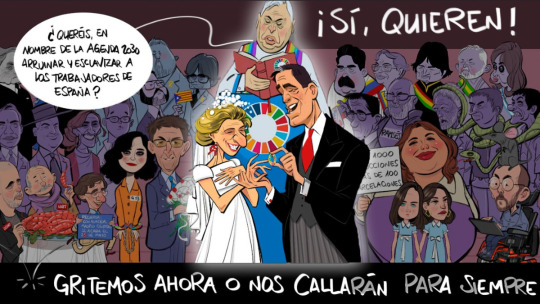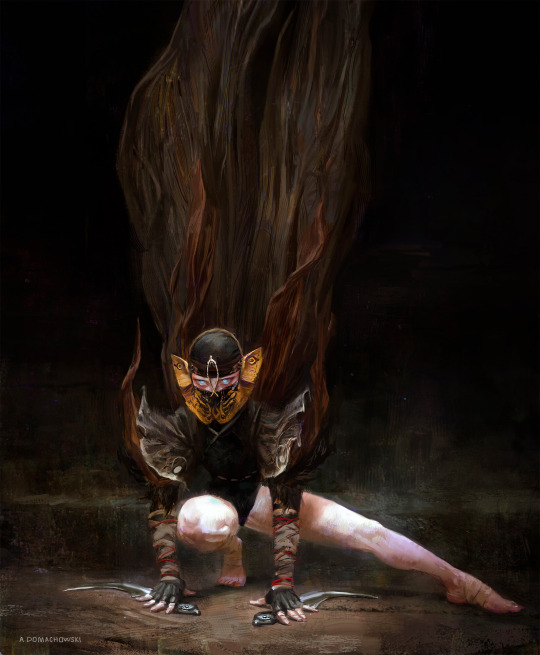#Junta Electoral
Text
¿Te ha tocado mesa electoral el 23J y no puedes ir? Causas personales, familiares o profesionales, estas son las excusas permitidas
Ya se conoce la composición de las mesas electorales del 23 de julio. Usted sabrá si ha sido designado en uno de los sorteos que se han celebrado en España para designar a las personas que deben atender las mesas electorales. La expectación es alta porque la notificación puede trastocar el plan de verano largamente planificado o las vacaciones deseadas desde hace meses.
Tal es la atención que la…

View On WordPress
0 notes
Text
Boletas de Pablo Swar y Matías Nanni fueron oficializadas, la de Jorge Metz quedó en el camino
Boletas de Pablo Swar y Matías Nanni fueron oficializadas, la de Jorge Metz quedó en el camino
Las boletas de Pablo Swar y Matías Nanni fueron oficializadas, pero la de Jorge Metz quedó en el camino por falta de avales.
La Junta Electoral de Juntos por el Cambio le dio luz verde el viernes pasado a las listas de precandidatos a intendente de Berisso que lideran el concejal Pablo Swar por “Falta menos para vivir mejor”, el espacio de Horacio Rodríguez Larreta, y la del concejal…

View On WordPress
#Adriana Scimeca#Antonella Villa Chiodo#Berisso#Diego Santilli#elecciones#elecciones 2023#Gabriela Fonseca#Griselda Colunga#Gustavo Hovakimian#Jorge Metz#Jorge Troncoso#José Suarez#Junta Electoral#Mariana Soledad Lezica#Matías Nanni#Mauricio Macri#Maximiliano Aguiar#Maximiliano Fernández#Miriam Frydman#Néstor Alonso#Néstor Grindetti#Oficina Anticorrupción#Oscar Heick#Pablo Swar#PASO#Patricio Yalet#Raúl Armando Zaiz#Silvia Pacchialat#Silvina Di Renta#Silvina Santillán
0 notes
Text
La Junta Electoral archiva el recurso del PP contra la lona de Solidaridad mientras Almeida obstaculiza el acto del sindicato en Chamberí
La Junta Electoral Provincial de Madrid ha decidido el archivo del recurso interpuesto por el Partido Popular en el que solicitaba la retirada de la lona que el sindicato Solidaridad ha instalado en la fachada de la calle Alcalá 111 anunciando su acto del 1º de Mayo.
En su escrito, el PP alegaba que el contenido del diseño vulneraba el artículo 53 de la LOREG porque contenía» publicidad y…

View On WordPress
#1º de Mayo#Almeida#Chamberí#Día de los trabajadores#José Luis Rodríguez Almeida#Junta Electoral#Plaza de Chamberí de Madrid#Santiago Abascal#Solidaridad
0 notes
Text
La Violencia (Research I did for Encanto fic writers so you don't have to)
TW: Assassination and death
Long but necessary post
@yellowcry @miracles-and-butterflies @evostar (if you already knew about it, that's fine, but reblog so others can too.)
To put it simply;
During this time, an estimated 200,000 people lost their lives, with 112,000 of those deaths occurring between 1948 and 1950. Additionally, two million people were forcibly displaced from their homes, primarily to Venezuela.
The root of this conflict lies in the intense partisan rivalries between Colombia’s two traditional political parties: the Liberal Party and the Conservative Party. These tensions created a divide between liberals and conservatives, eventually leading to the partial collapse of the state and existing institutional structures. As violence escalated, economic motivations began to outweigh political ones, and armed bands took advantage of the chaos to commit robberies, assaults, and revenge against their neighbors.
More in depth;
La Violencia was a ten-year civil war in Colombia from 1948 to 1958, between the Colombian Conservative Party and the Colombian Liberal Party, fought mainly in the countryside.
Liberal hegemony continued through the 1930s and the World War II era, and Alfonso López Pumarejo was reelected in 1942; however, wartime conditions were not favourable to social change. In the elections of 1946, two Liberal candidates, Gabriel Turbay and Jorge Eliécer Gaitán, stood for election and thus split the Liberal vote. A Conservative, Mariano Ospina Pérez, took office.
Conservatives had been embittered by political sidelining and, since 1930, had suffered violent attacks at the hands of Liberal supporters. With the electoral victory of 1946 they instituted a series of crude reprisals against Liberals. It was the initiation of the period that was dubbed La Violencia. On April 9, 1948, Gaitán, leader of the left wing of the Liberal Party, was assassinated in broad daylight in downtown Bogotá. The resulting riot and property damage (estimated at $570 million throughout the country) came to be called the bogotazo.
La Violencia originated in an intense political feud between Liberals and Conservatives and had little to do with class conflict, foreign ideologies, or other matters outside Colombia. Authoritative sources estimate that more than 200,000 persons lost their lives in the period between 1946 and 1964.
The most spectacular aspect of the violence, however, was the extreme cruelty perpetrated on the victims, which has been a topic of continuing study for Colombians. La Violencia intensified under the regime of Laureano Gómez (1950–53), who attempted to introduce a fascist state. His excesses brought his downfall by military coup—Colombia’s first in the 20th century. Gen. Gustavo Rojas Pinilla assumed the presidency in 1953 and, aided by his daughter, María Eugenia Rojas, began an effort to end La Violencia and to stimulate the economy.
Rojas was a populist leader who supported citizens’ demands for the redress of grievances against the elite. Support for Rojas began to collapse when it appeared that he would not be able to fulfill his promises, when he showed reluctance to give up power, and when the economy faltered as a result of a disastrous fall in coffee prices in 1957. He was driven from office that year by a military junta.
The arrangement for the National Front government—a coalition of Conservatives and Liberals—was made by Alberto Lleras Camargo, representing the Liberals, and Laureano Gómez, leader of the Conservative Party, in the Declaration of Sitges (1957).
The unique agreement provided for alternation of Conservatives and Liberals in the presidency, an equal sharing of ministerial and other government posts, and equal representation on all executive and legislative bodies. The agreement was to remain in force for 16 years—equivalent to four presidential terms, two each for Conservatives and Liberals. The question of what governmental structure would follow the National Front was left unsettled.
It had been contemplated that a Conservative would be the first to occupy the presidency in 1958. When the Conservative Party could not agree on a candidate, however, the National Front selected Lleras, who had previously served in that office for 12 months in 1945–46.
During Lleras’s tenure an agrarian reform law was brought into effect, national economic planning for development began, and Colombia became the showcase of the Alliance for Progress (a U.S. attempt to further economic development in Latin America). But severe economic difficulties caused by low coffee prices, domestic unemployment, and the apparent end of the effectiveness of import substitution were only partially offset by Alliance aid.
The Alliance increased Colombia’s economic dependence on the United States, which, to some Colombians, had serious disadvantages. By 1962 economic growth had come almost to a standstill.
The precarious state of the economy and the degree of social tension were revealed when only about half of those eligible to vote did so in the 1962 presidential elections, which brought Guillermo León Valencia, a Conservative, to the presidency.
During Valencia’s first year in office internal political pressures led to devaluation of the peso (Colombia’s currency), wage increases among unionized workers of some 40 percent, and the most rampant inflation since 1905. Extreme deflationary policies were applied in the next three years, raising the unemployment rates above 10 percent in the major cities and turning even more Colombians against the National Front.
Less than 40 percent of the electorate went to the polls in the 1964 congressional elections.
Marxist guerrilla groups began appearing in Colombia during Valencia’s presidency. The first was the National Liberation Army (Ejército de Liberación Nacional; ELN), which was created by a group of Colombian students who had studied in Cuba.
Founded in 1964, the ELN followed strategies espoused by Che Guevara. Another guerrilla group, which followed two years later, was the Colombian Revolutionary Armed Forces (Fuerzas Armadas Revolucionarias de Colombia; FARC), which was more connected to Soviet-influenced communist movements. Much of FARC originated in the “resistance committees” that had appeared in Colombia during La Violencia.
Carlos Lleras Restrepo was the third National Front president (1966–70). He returned the economy to a sound footing, improved government planning for economic development, and pushed through political reforms essential to an orderly end to the Front (which seemed increasingly to constitute a monopoly of power by the Conservative-Liberal oligarchy).
Although the constitutional reform of 1968 stipulated that elections would become competitive again after 1974, the president was still required to give “adequate and equitable” representation to the second largest political party in his cabinet and in the filling of other bureaucratic posts.
Read more here (This article is mostly where I got my info from as well as copilot.ai. I know, AI is bad, but please don't judge me. I was not about to do six hours of research when I have a tool that can help me in seconds.)
What does this have to do with the madrigals?
Well, if you're planning on writing any madrigal (or all) outside of Encanto, La violencia is something you need to take into consideration. It's an important part of Colombia's culture and shouldn't be ignored.
(I just learned about it recently and in turn, need to rewrite some stuff. So I can only imagine that half of the Encanto fandom knows nothing about it)
What cities were safe you ask? I don't think there really was any.
Bogotá: As the capital of Colombia, Bogotá witnessed significant unrest during this period. Political factions clashed, leading to violence and instability.
Cali: Cali, located in the southwestern part of the country, also suffered from La Violencia. It was a hotspot for clashes between Liberal and Conservative supporters.
Medellín: Medellín, another major city, faced its share of violence. The conflict often played out in the streets, affecting civilians and communities.
Barranquilla: This coastal city experienced tensions between rival political groups, resulting in bloodshed and loss of life.
Cartagena: Cartagena, known for its historical significance, was not immune to the violence. The struggle between Liberals and Conservatives left scars on its urban landscape.
Cúcuta: Located near the border with Venezuela, Cúcuta also witnessed violence during La Violencia.
Palmira, Santa Marta, Soledad Atlántico, Armenia, Pereira, Neiva, Valledupar, Bucaramanga, Popayán, Villavicencio, and Soacha were other cities affected by the turmoil.
So, in either city, the madrigals would be exposed to this war if they chose to come out. Now, let's say Encanto is in the very center of Colombia (or at lease close to it) -

(Right where the red dot is)
The closest area is Villavicencio, Puerto Lypez, and Bogota. All three cities that were affected by the war. And I'm not saying Villavicencio is THAT close to Encanto, probably a week trip at best, but still.
Why did I choose the center of Colombia?
Because I don't see it sitting anywhere else. And it's convenient fic wise. But you can do what you want.
Now I'm not saying the Madrigals won't experience fun in the new world. They most certainly will (culture and technology wise), but the war is really unavoidable for them.
That's all for now, but if you have anything to add or for me to correct, reblog or message me.
#Encanto#encanto fanfic#mirabel madrigal#luisa madrigal#isabela madrigal#julieta madrigal#agustin madrigal#alma madrigal#bruno madrigal#antonio madrigal#camilo madrigal#dolores madrigal#pepa madrigal#felix madrigal
45 notes
·
View notes
Text
Surveying the reactions of top Republicans after Donald Trump’s indictment on charges of mishandling classified information, you’d think the country was in the midst of a coup.
“It is unconscionable for a President to indict the leading candidate opposing him,” House Majority Leader Kevin McCarthy tweeted. “The weaponization of federal law enforcement represents a mortal threat to a free society,” Florida Gov. Ron DeSantis claimed. “There is no limit to what these people will do to protect their power & destroy those who threaten it, even if it means ripping our country apart,” Sen. Marco Rubio declared.
These are extraordinary claims — and all made on Thursday night before the indictment or the evidence behind it was made public. On Friday morning, we learned thanks to CNN that Trump is literally on tape in 2021 discussing having documents in his possession that he knew were still classified. “As president, I could have declassified, but now I can’t,” he reportedly said.
The tape may or may not prove dispositive in a court of law; there’s certainly room for good-faith disagreement on the strength of the case against Trump. But the tape is at least very strong evidence that these charges are not some kind of Biden-mandated witch hunt but instead based on very serious allegations of wrongdoing.
Yet top Republicans — including Trump’s leading rival for the 2024 election — have shown no signs of changing their tune, and instead are lining up behind Trump’s conspiracy theory that special counsel Jack Smith is leading Joe Biden’s personal Stasi.
This paranoid reaction to Trump’s indictment is not a surprise. Over the past several years, the political right has been captured by a worldview that sees the entirety of mainstream society arranged against it. According to this thinking, America’s “woke” power elite, including ostensibly neutral institutions of governance like the Justice Department, is determined to stamp out the conservative way of life. You are either with us or against us — and attempting to send Trump to jail, whatever the reason, puts you on the wrong side.
Such once-fringe thinking now dominates the Republican Party at the very highest levels. Whether people like McCarthy and DeSantis actually believe it is immaterial: The fact that they feel the need to say such wild things indicates just how central anti-institutional paranoia has become in Republican politics.
The dangers of this going forward, as Trump faces trial and America faces an election where he is the GOP’s most likely presidential candidate, should not be underestimated. A democracy whose basic institutional functions come under attack is a democracy in mortal peril.
THE PARANOID STYLE IN REPUBLICAN POLITICS
The entire Trump phenomenon was, from the very beginning, about conservative fear of losing America. Study after study after study has found that Trump voters in the GOP primary and electorate are motivated by a concern that the United States is becoming literally unrecognizable: populated by people who look different and think differently than they do.
The fears of the base were reflected in the language of the elite. In 2016, the most famous intellectual case for Trump in 2016 was Michael Anton’s “Flight 93” essay — which argued that these changes were transforming the government in ways that handed more and more control over American government to the left. Anton spoke of a “bipartisan junta” that controlled the centers of power and wielded it against conservative institutions, a kind of soft coup against ordinary Americans backstopped by demographic change.
“Our side has been losing consistently since 1988,” Anton wrote. “The ceaseless importation of Third World foreigners with no tradition of, taste for, or experience in liberty means that the electorate grows more left, more Democratic, less Republican, less republican, and less traditionally American with every cycle.”
Anton’s essay, seen as fringe at the time, captured an essential linkage of the Trump era: between the traditional conservative sense of alienation from mainstream American culture and growing hostility to its governing institutions. The general conservative sense that they were losing America demographically and spiritually could easily be translated into a case that the government itself was hostile to their interests.
So when Trump began facing legal trouble during his presidency, at first over his campaign’s ties to Russia, he ran a version of the Anton playbook (Anton was, at the time, serving in Trump’s White House). He argued, in now-familiar but then-novel terms, that the investigation was a “deep state” plot against Trump — that special counsel Robert Mueller and his investigators were Democrats who sought only to destroy his presidency.
Faced with this challenge, the rest of the Republican Party had a choice: They could defend the underlying integrity of the Justice Department, even while remaining skeptical of the merits of this specific investigation, or fully accede to the Trumpist “witch hunt” narrative. We know which one they chose, and we know why they chose it: Trump had built such a powerful following on the basis of his paranoid critique of America that any Republican who challenged it risked career suicide.
The Russia investigation set a pattern that would endure for the entire Trump presidency. Again and again, when faced with credible allegations of wrongdoing, Republicans indulged Trump’s wildest fantasies out of either fear or genuine belief. The Anton worldview, once the province of cranks, evolved into the official narrative of the Republican Party — an evolution cemented when Trump attempted to overthrow the 2020 election and the party elite permitted him to do so.
In the Biden years, with Republicans out of power, the narrative of an entire government arranged against them only became more credible in the eyes of the base. Surveys consistently showed that a large majority of Republicans believed his claims of voter fraud; political scientists have shown that this belief is likely genuine and that Republican politicians who parrot Trump’s lies improve their standings in the eyes of the base.
The result is a party that has, in the past several years, grown increasingly radicalized against the core institutions of America. They believe that everything in America is turning against them: not just the traditional enemies like the media and Hollywood, but also the military, big business, and even the US Olympic team. If you express agreement with the left on anything from LGBTQ issues to Trump’s fitness for office, you are an enemy of the right.
The dangers of this shift cannot be overestimated. Republicans are already vowing to “bring accountability to the DOJ” (DeSantis) and “hold this brazen weaponization of power accountable” (McCarthy). If Republicans do win the White House in 2024, the chances of an attempt to turn the Justice Department into an actually political institution are very high. If Trump is their candidate, it’s basically a certainty.
And if they lose — well, January 6 showed us what could happen when Republicans believe they’ve lost illegitimately. And we’re already seeing paranoia about this indictment bleed over into paranoia about the upcoming election.
“Biden is attacking his most likely 2024 opponent. He’s using the justice system to preemptively steal the 2024 election. This is what’s happening, plain and simple,” writes Sen. J.D. Vance (R-OH).
Democracy depends on both sides respecting the rules of the game. But one side has decided, without any real evidence, that the rules are rigged against them — and have demonstrated a willingness to disregard them as a result.
#us politics#news#vox#classified documents#classified documents probe#donald trump#republicans#conservatives#2023#department of justice#jack smith#ag merrick garland#rep. kevin mccarthy#gov. ron desantis#Sen. Marco Rubio#sen. j.d. vance#Michael Anton#conspiracy theorists
100 notes
·
View notes
Text




IMAGENES Y DATOS INTERESANTES DEL DIA 21 DE ABRIL DE 2024
Día Mundial de la Creatividad y la Innovación, Día de los Padrinos y las Madrinas, Semana Mundial de la Creatividad y la Innovación, Semana Europea de la Inmunización, Semana de Vacunación en las Américas, Año Internacional de los Camélidos.
San Silvio y San Anselmo.
Tal día como hoy en el año 1967
El ejército Griego da un golpe de Estado. En diciembre, el rey Constantino se dirigirá al pueblo exhortándole, sin éxito, al derrocamiento de la Junta Militar. Como consecuencia de ello se tendrá que exiliar en Roma. (Hace 57 años)
1960
Aunque aún permanece en construcción, Brasil estrena capital futurista en medio de la selva amazónica: Brasilia. Lucio Costa y Oscar Niemeyer, arquitectos, dan cumplimiento a una promesa del presidente Juscelino Kubitschek hecha a sus votantes en 1955 durante la campaña electoral. Su construcción comenzó en 1956. En 1987 la UNESCO la declarará parte del patrimonio mundial, evitando la modificación de su estructura original y promoviendo su preservación. (Hace 64 años)
1944
A pesar de que Francia fue el primer país en otorgar el sufragio universal a los ciudadanos varones en 1848, es sólo en el día de hoy, tras décadas de lucha llevada a cabo por las sufragistas, cuando las mujeres obtienen el derecho de voto al firmar el general De Gaulle en Argelia, la disposición legislativa para que las mujeres puedan ser "electoras y elegibles en las mismas condiciones que los hombres". (Hace 80 años)
1526
En la India, tiene lugar la batalla de Panipat, donde Ibrahim, sultán de Delhi, cae derrotado por el mongol Babur, descendiente de Gengis Kan. Esta victoria permitirá a Babur adueñarse del norte del país y fundar allí el imperio mongol. El imperio mongol extenderá poco a poco sus límites inaugurando la etapa de sometimiento de la India al Islam. (Hace 498 años)
1519
Hernán Cortés llega las playas de Chalchihuecan (Golfo de México) con 10 navíos y un bergantín y 700 hombres para emprender la conquista del país. Al día siguiente, Viernes Santo 22 de abril, fundará la "Villa Rica de la Vera Cruz" y para impresionar a los indígenas organizará carreras de caballos, animales desconocidos en el Nuevo Mundo, y hará disparos con falconetes y arcabuces. Esta será la primera de las 4 fundaciones de la "peregrina" ciudad de Veracruz. (Hace 505 años)
1509
En Inglaterra, Enrique VIII asciende al trono al morir hoy su padre, Enrique VII. Se convierte así en el segundo monarca de la casa Tudor. Se casará seis veces y ejercerá el poder más absoluto entre todos los monarcas ingleses. Al rechazar el Papa su anulación matrimonial, romperá con la Iglesia Católica Romana, y será cabeza de la Iglesia de Inglaterra (Iglesia Anglicana). (Hace 515 años)
753aC
Aunque recientemente se han encontrado tumbas en el valle del Foro que se remontan al siglo X a. C., según la leyenda, Rómulo y su hermano gemelo Remo, fundan Roma en el mismo sitio donde una loba los cuidó y amamantó. Según la misma leyenda, ya de jóvenes se enzarzarán en una pelea y tras saltar Remo sobre una muralla que Rómulo estará construyendo, éste lo ensartará con su espada. Rómulo llamará Roma a este emplazamiento en honor a su hermano. En los próximos 1.000 años, la ciudad crecerá hasta llegar a ser el corazón del imperio romano, pero en el año 330 de nuestra era y tras siglos de dominación, el emperador Constantino transferirá la capital del imperio a Constantinopla. La antes todopoderosa Roma se convertirá en ciudad objeto de invasiones bárbaras. Más tarde, durante la Edad Media, el Papado se instalará en Roma, pero no será hasta el siglo XV, en que el Papa Nicolás V iniciará la restauración de la ciudad, cuando se asemeje de nuevo a su grandeza original. (Hace 2777 años)
2 notes
·
View notes
Text
@ionantolin
Papeletas ya marcadas con el voto al PP en un colegio electoral de Los Villares (Jaén). Denunciado ante la Junta Electoral.
8 notes
·
View notes
Text
Esa suerte ya está echada…

Tonatiúh Medina / Agencia Cuestión de POLÉMICA
El pasado 14 de febrero de 2023 la Cámara de Diputados aprobó la convocatoria al proceso de elección de las ciudadanas y ciudadanos que ocuparán los cargos de una Consejera Presidenta o un consejero Presidente y tres cargos de Consejeras y Consejeros Electorales del Consejo General del Instituto Nacional Electoral para el periodo del 4 de abril de 2023 al 3 de abril de 2032, para cumplir lo establecido en el artículo 41, base V, apartado A, párrafo quinto y sus inciso a) al e) de la Constitución Política de los Estados Unidos Mexicanos y en lo conducente los artículos 20 numeral 2, inciso j) 34 numeral 1, inciso i), y 34 Bis, de la Ley Orgánica del Congreso General de los Estados Unidos Mexicanos. Muy técnico ¿no?
La convocatoria contempla las siguientes etapas:
Registro de las y los aspirantes
De la evaluación de las y los aspirantes
Primera Fase. Revisión del cumplimiento de requisitos constitucionales
Segunda Fase. Evaluación de conocimientos en las materias constitucional, gubernamental, electoral y de derechos humanos.
Tercera Fase. Evaluación de la idoneidad.
Cuarta Fase: Entrevista con las personas aspirantes
De la selección de las personas aspirantes que integrarán las listas que se remitirán a la Junta de Coordinación Política.
De la elección de las Consejeras y Consejeros Electorales del Consejo General del Instituto Nacional Electoral.
En estas se registraron y cumplieron con los requisitos constitucionales un total de 531 personas, de las cuales fueron 164 mujeres, 358 hombres, 5 no-binarios, 1 mujer trans y 3 no se identificaron.
La evaluación de conocimientos en las materias constitucional, gubernamental, electoral y de derechos humanos, se realizó a través de un examen que se aplicó el día 7 de marzo de 2023, al que se presentaron 508 aspirantes, y los resultados de éste se dieron a conocer de manera preliminar el día 8 de marzo y de manera definitiva el pasado 10 de marzo, lista que se conformó con 102 hombres y 101 mujeres.
Este proceso de selección que parecía serio y formal se tornó en un proceso plagado de irregularidades con la aplicación del examen, al ingresar a la sala de sesiones de la Cámara de Diputados, a los aspirantes se les entregó un sobre sin cerrar el cual contenía una hoja con solo la información de usuario y contraseña. la designación de lugares no se realizó bajo el orden de registro u orden alfabético alguno, solo unas personas que auxiliaban en el ingreso, sin un criterio uniforme, eran las encargadas de determinar el curul a ocupar de los aspirantes, dejando incluso espacios vacíos, sin justificación alguna.
La aplicación del examen, sin previo aviso, se realizó a través de los dispositivos electrónicos que se encuentran fijados en las 500 curules de la Cámara de Diputados, o sea, los concursantes utilizaron el sistema electrónico de votación exclusivo para su uso de los diputados de la actual legislatura y que casualmente maneja el Secretario de Asuntos Parlamentarios, muy cercano al oficialismo.
La información sobre la aplicación del examen establecía que la hora de aplicación sería a partir de las 11 horas, sin embargo, el mismo inicio aproximadamente entre 15 a 20 minutos después, de la misma, se les indicó a los aspirantes que en los dispositivos electrónicos seleccionaran una aplicación instalada en la misma y, posteriormente ingresaran el usuario y contraseña del sobre.
Respecto del mecanismo que se utilizó para la aplicación del examen, desde el inicio de la aplicación de éste, muchos aspirantes tuvieron problemas de conexión de la aplicación, incluso el usuario y contraseña proporcionados no eran válidos, superando estos primeros inconvenientes, durante la aplicación del mismo se presentaron múltiples intermitencias en la conexión del sistema que se utilizó durante todo el tiempo de aplicación del examen, el tiempo en pasar de una pregunta a otra en muchas ocasiones fue muy lento, lo que indicaba que las mismas tenían conexión no solo a una red interna sino a una externa, lo que maximiza la vulnerabilidad del sistema informático que se utilizó.
Ahora, sobre el contenido del examen, este no indicaba si sería aplicado con información de la reciente reforma electoral que se publicó el día 2 de marzo de 2023, aún y cuando se comentó al inicio de la aplicación del mismo que el examen consistiría de 80 reactivos, 40 relacionados con temas relacionados con la convocatoria y 40 sobre comprensión de partes de textos en las mismas materias, la redacción de los mismos no era uniforme, se advertía de manera evidente que no se apegó a una metodología que diera certeza de la objetividad de su contenido, ni existió información sobre el apoyo de alguna universidad o institución con experiencia previa en estos ejercicios.
Aunado a ello, no solo en la redacción de preguntas sino en la construcción de las respuestas no se percibía la tan necesaria metodología, sino que incluso las propias respuestas eran sujetas a interpretación, ambiguos, erróneas y subjetivas. En algunos casos dos de las cuatro opciones de respuestas era exactamente igual. ¿Quiere un ejemplo? Busque Usted mismo la cuenta en Twitter de Miguel Ángel Lara Otaola, un experto en sistemas electorales – @malaraotaola – créame él cuenta a la perfección y de forma pública todas las irregularidades que los concursantes sufrieron al presentar su examen.
Desde el 8 de marzo, con la publicación de la lista preliminar para sorpresa de verdaderos expertos y expertos, con sólidas trayectorias en la materia electoral, no solo en el ejercicio de la actividad en diversas instancias jurisdiccionales y/o administrativas e incluso del ámbito académico, quienes sustentaron las más altas calificaciones fueron personas con notorios lazos con el partido MORENA, muchas de ellos totalmente ajenos al ejercicio de la función electoral, lo cual refuerza la idea de la filtración del contenido del examen, información que fue confirmada por el Comité Técnico de Evaluación, dos personas tuvieron acceso al examen “pero no lo imprimieron”, menos mal.
Continuando con las irregularidades, aún y cuando la convocatoria preveía un procedimiento de revisión y que se habilitó el medio para hacer valer ésta, el resultado de la misma no cumplió con responder puntualmente las observaciones realizadas por los aspirantes que la solicitaron, quienes, de forma concreta, así como con el debido soporte y fundamentación, expusieron las razones por las cuales consideraron que las respuestas por ellos seleccionadas era la correcta y no la considerada por el Comité Técnico de Evaluación.
La respuesta que se les dio de manera generalizada, sin particularizar cada caso concreto, fue “las preguntas y las respuestas del examen aplicado parten de una base objetiva”, sin mayor justificación al respecto de este acto de autoridad. En algunos otros casos, los aspirantes han manifestado que el sistema no califico el total de las 80 preguntas, lo que evidencia fallas informáticas en la propia plataforma del sistema informático que se utilizó. Esto va a terminar mal…
Notas al calce
Primero, el desacato del Comité Técnico de Evaluación del amparo otorgado a Javier Santiago Castillo, al cual se le dio por la vía judicial la oportunidad de presentar su examen, pero que el comité decidió “por sus pistolas” desestimar. Que pena.
Segundo, se sabe de un Magistrado de la Sala Superior que estando fuera de la ciudad, rápidamente compró un boleto de avión para presentarse a la Sesión en donde conoció el caso de la Consejera Humphrey Jordan, la cual a su vez solicitó que el Magistrado Presidente se excusara de conocer del caso por un supuesto “conflicto de interés”. Que caray.
8 notes
·
View notes
Text
The leader of Gabon's military junta has vowed to return power to civilians after "free, transparent" elections.
However, in a speech after being sworn in as interim president, he did not give a date for military rule to end.
Gen Brice Nguema led last Wednesday's coup against Ali Bongo, toppling the president shortly after he was named winner of a disputed election.
Crowds of cheering civilians turned up at the inauguration - the coup was welcomed by many eager for change.
However, some say Gen Nguema's rule will be a continuation of the 55-year Bongo dynasty.
Ali Bongo's father, Omar, was in power for 41 years before he died in 2009 and was succeeded by his son.
The general, aged 48, spent most his career in the Bongo's inner circle and is even thought to be Ali Bongo's cousin.
Africa Live: Updates on this and other stories from across the continent
Gabon's unexpected new strongman
Why young Africans are celebrating military takeovers
At Monday's inauguration, Gen Nguema gave a defiant speech, referencing the likes of South African Archbishop Desmond Tutu, French statesman Charles Fe Gaulle and former Ghanaian leader Jerry Rawlings.
"This patriotic action will be a lesson learnt that will be taught in the books of our schools," said the new president, dressed in the red ceremonial costume of the Republican Guard.
He added that a fresh government would be formed "in a few days" and recommended new electoral legislation, a new penal code and a referendum on a new constitution.
Gen Nguema also said he had instructed the new government "to think without delay" about freeing all political prisoners.
The ceremony was broadcast live on Gabonese TV and across online platforms.
Hundreds of officials attended, including former ministers from the ousted government, who were booed by a crowd of junta sympathisers.
The opposition has said it welcomes the removal of Mr Bongo from power but has called for a speedy return to civilian rule.
The defeated presidential candidate Albert Ondo Ossa told the Associated Press that the coup was a "palace revolution", engineered by the Bongo family to retain their power.
Gen Nguema's is the latest in a series of military takeovers across West and Central Africa.
Gabon is the sixth Francophone country to fall under military rule in the last three years as former colonial power France struggles to maintain its influence on the continent.
Gabon was suspended from the African Union following the coup, which has been condemned by the UN and France.
In his inauguration address on Monday, Gen Nguema said he was "surprised" at foreign criticism of the takeover.
#anoymous#that's 3 coups in the last month I think#in case anyone needed a refresher on what a coup looks like#people seem confused about that
2 notes
·
View notes
Text
Acroarte suma esfuerzos para sensibilizar con la JCE los Colegios Electorales
Director de Elecciones Mario Núñez y Emelyn Baldera, presidente de Acroarte llevaron el conversatorio en el que participaron Caesco y Sodomedi también.
Santo Domingo, RD. – La Asociación de Cronistas de Arte (Acroarte) comprometida en el rol de bien informar y capacitar a sus miembros sumó esfuerzos para sensibilizar con la Junta Central Electoral, en torno al proceso electoral…

View On WordPress
2 notes
·
View notes
Text
La Junta Electoral da 24 horas a Vox para retirar la lona del odio

5 notes
·
View notes
Text
🤔Casualmente casual:
Convocatoria,25 de julio del 2023, Proceso Electoral.

Fecha de NUESTRA publicación 21 de julio del 2023.👇🏽👇🏽👇🏽👇🏽👇🏽👇🏽👇🏽👇🏽👇🏽👇🏽
🎙️Presentación de Candidaturas: Organismos Funcionales 🇳🇬.
🧩🧩🧩🧩🧩
Las elecciones sindicales se llevan a cabo cada 4 años y las últimas se realizaron en 2019 promovidas por el sindicato UITA. Con el inicio de un nuevo período (2023-2027), las elecciones pueden ser convocadas por los propios trabajadores o sindicatos: CCOO, UGT y UITA.
Con la información en la mano del tablón digital de la junta de Andalucía en dicho tema, no se ha ejecutado ningún preaviso, meses de junio y julio por parte de las tres secciones sindicales, se puede deducir que no se ha convocado proceso de convocatoria de elecciones sindicales.
Llevamos más de 12 años con el mismo panorama sindical y sin vistas a cambiar.
¿ Te sientes Representado/a por CCOO, UGT o UITA?.
¿Estás contenta/o con la Evaluación y Resultado de estos años?.
¿Quieres seguir con ellos otros 4 años más? #2027.
Desde CGT AGAPA 💚 lo tenemos claro. Es importantísimo tener Representación Sindical en los distintos Organismos Funcionales para defender y promover los intereses y Derechos laborales del personal laboral propio.
La finalidad de esta propuesta es clara: queremos asegurarnos de que nuestras VOCES sean escuchadas y representadas en todos los niveles y decisiones dentro de nuestra organización. Sabemos que sin ti, nuestro equipo, ninguna de las acciones tendría sentido.
Te invitamos a completar 📑el Formulario para postularte como Vocal en tu Organismo Funcional . Trabajemos juntos para lograr un cambio positivo y construir un lugar de trabajo donde la injusticia no se convierta en Ley ⚔️.
Cada uno de ustedes, con su experiencia y perspectiva única, tiene un papel fundamental en la construcción de un ambiente laboral justo y equitativo.
Con este formulario, llegamos a todos los rincones de Andalucía💚 para buscar nuestras “parejas”♀️♂️😉.Si tienes inquietudes, quieres aportar ideas y propuestas para mejorar nuestro entorno de trabajo.¡Aquí es!.👇🏽
📧📨📨📨📨📨 Te lo haremos llegar por correo.....
Somos profesionales con años de experiencia en el sector. Al dar un paso al frente y comprometernos con la mejora, estamos demostrando nuestra dedicación. La lucha por nuestros derechos y por lo que nos pertenece, depende de nosotros mismos hacerlo realidad.
CGT AGAPA 💚💃🏾🔥🕺🏾, 🎙️Queremos Ser Tu Voz!!.
1.320 Plazas o puestos.
¿Bailamos?.🎙️Buscamos Parejas♀️♂️🖤❤️💜💚
🫱🏾🫲🏾🖐🏾✋🏾🫴🏾Y aserejé-ja-dejé
De jebe tu de jebere seibiunouva majavi an de bugui an de güididípi.
#somosderock🤟🏽


1 note
·
View note
Text

REPUBLICA DOMINICANA
JUNTA CENTRAL ELECTORAL
DIRECCION NACIONAL DE REGISTRO DEL ESTADO CIVIL
EXTRACTO DE ACTA DE NACIMIENTO
(Art, 99 Ley No 659, del 17-7-1944)
[…] MOS: Que en la Oficialía del Estado Civil de la IRA. CIRCUNSCRIPCION, DISTRI […] cho del mes de Mayo del año Dos Mil Catorce (28-05-2014), se encuentra inscrito en […] IMIENTO, DECLARACIÓN OPORTUNA, Folio No. 0044, Acta No. 001304, […] e a:
**** RAMÓN ****
[…] INO, nacido en CLÍNICA ALARCÓN, SANTO DOMINGO el día Venticuatro de […] -2006).
[…] TAR, FRANCISCO, país de nacionalidad Republica Dominicana, Cédula de Iden […]
[…] TAR, GRACIELA, país de nacionalidad Republica Dominicana, Cédula de Iden […]
—— No más información debajo de esta línea ——

REPUBLICA DOMINICANA
JUNTA CENTRAL ELECTORAL
DIRECCION NACIONAL DE REGISTRO DEL ESTADO CIVIL
EXTRACTO DE ACTA DE NACIMIENTO
(Art, 99 Ley No 659, del 17-7-1944)
CERTIFICAMOS: Que en la Oficialía del Estado Civil de la IRA. CIRCUNSCRIPCION, DISTRITO NACIONAL, registrado el Veintiocho del mes de Mayo del año Dos Mil Catorce (28-05-2014), se encuentra inscrito en el Libro No. 00172 de registros de NACIMIENTO, DECLARACIÓN OPORTUNA, Folio No. 0044, Acta No. 001304, Año 2014, el registro perteneciente a:
**** RAMÓN ****
De sexo MASCULINO, nacido en CLÍNICA ALARCÓN, SANTO DOMINGO el día ______ del mes de ______ del año ______.
PADRE: BOLITAR, FRANCISCO, país de nacionalidad Republica Dominicana, Cédula de Identidad No. […]
MADRE: BOLITAR, GRACIELA, país de nacionalidad Republica Dominicana, Cédula de Identidad No. […]
—— No más información debajo de esta línea ——
#billions#4x01#ramon bolitar#the first image does actually contain information not in the second one (the day and year of ramon's birth. sadly not the month)
2 notes
·
View notes
Text
Magistrada Alba Luz Ramos destaca notable equidad de género en elecciones municipales
La magistrada Ramos Vanegas, después de ejercer su derecho al voto en el Centro de Votación número 934, en la Junta Receptora de Votos 03, subrayó ante los periodistas que cubrieron esta jornada electoral de los nicaragüenses, “que, en este ejercicio democrático de elección de gobiernos locales, se está cumpliendo con la política pública del Gobierno de Reconciliación y Unidad Nacional, de garantizar la equidad de género”.
2 notes
·
View notes
Text
Reactionary dictatorships can be broadly distinguished by the segment of the ruling class whose interests they primarily represent. These are just preliminary thoughts and there are definitely others, but rough classifications might look like this:
The old ‘conservative authoritarian’ regimes of interwar Europe were deployed to uphold pre-liberal power structures and values (church, crown, aristocracy) and revitalize them with experiments in corporatism and militarization. Many of these regimes attempted to mimic fascist revolution in the 1930s-40s – such as Salazar's Estado Novo or Pétain's Révolution nationale – but dedicated fascists were marginalized or crushed and, in the case of Portugal and Spain, these para-fascist dictatorships were later able to defascistize into purely conservative, ‘integral Catholic’ ones. It seems to me that at least in Europe, this type of regime died in the 1970s with the Carnation Revolution, the death of Franco, and the collapse of the Greek junta.
In societies where the power of traditional elites has been wiped out, there are those regimes whose reaction is fundamentally bourgeois; Pinochet is probably the most well-known example, and authoritarian tendencies in liberal and neoliberal democracies are microcosms of the same phenomenon. A significant subcategory, or possibly heavily overlapping separate category, is neocolonial kleptocracies reinforced from outside, including the Marcos dictatorship, the Shah's Iran, and Operation Condor.
Also fundamentally bourgeois, but distinct from your Parks and Pinochets, are conservative ‘electoral autocracies’ mostly peculiar to the twenty-first century which combine ‘reformist’ ultra-nationalism and religious conservatism to gradually ‘authoritarianize’ the political system. There are distinctions to be made within this: Putin, Erdoğan, and Modi all embrace a militaristic machismo that seems to be alien to Orbán, for instance. Early Fascist Italy was something like this, with the important difference that Mussolini came to power on the back of an overtly revolutionary and totalitarian mass movement that the others lack.
And lastly there are places where traditional elites were never marginalized at all but successfully adapted ultra-conservative power structures to an increasingly globalized capitalist world, allowing royal, religious, aristocratic, and tribal elites to partner fully with the bourgeoisie in engineering a system both thoroughly modernized and profoundly reactionary, Saudi Arabia being the most infamous living example. It occurs to me that Imperial Japan may have been on the way to something similar.
#i did forget right-wing developmental regimes#i very briefly mentioned park's korea but nationalist china is the ur-example#phibun's thailand was a fascistized version that later became an american-backed anti-communist regime the second time around#the people's lobby
5 notes
·
View notes
Text
@Agus_Martinez58
¡Qué Junta Electoral, ni qué Junta Electoral, el Carnaval de Cádiz, sí que ha dictado sentencia sobre Macarena de Salobreña!
"Tú no eres andaluza
ay Macarena de mis entrañas
aquí eres una intrusa
ay Macarena la de Graná
Tú no eres andaluza
y nunca lo serás..."
9 notes
·
View notes